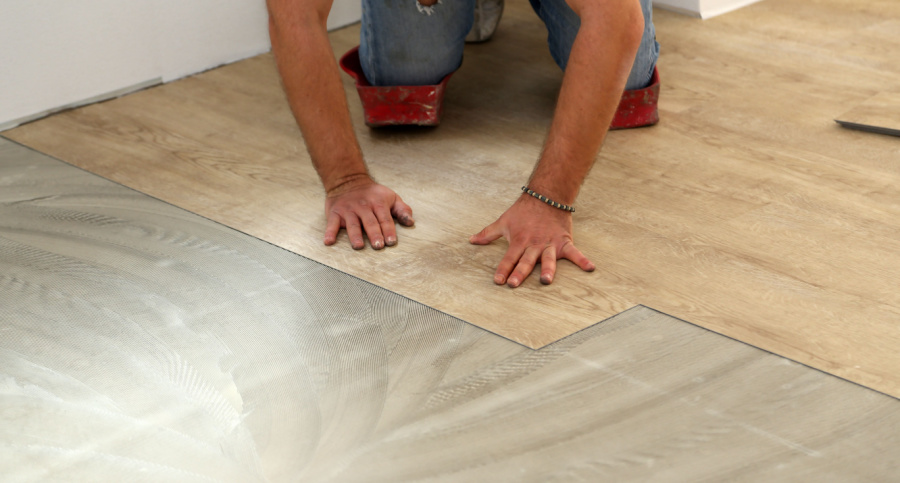Vinyl flooring has become an increasingly popular choice for homeowners in recent years with its practicality and versatility. Available in many styles, such as vinyl planks, sheets, and luxury vinyl tile, you can tailor your home aesthetics to your personal taste.
However, as with all significant home improvements, understanding the benefits and drawbacks of vinyl plank flooring is crucial before selecting. This guide provides a comprehensive breakdown of the pros and cons to determine if vinyl flooring fits your needs and space.
Pros of Vinyl Plank Flooring
Durability – One of the significant advantages of vinyl plank flooring is its exceptional durability. These floors are designed to withstand high foot traffic and resist scratches, scuffs, and stains, making them an excellent choice for busy households.
Water Resistance – Vinyl flooring is highly resistant to water damage, making it a suitable choice for areas such as kitchens, bathrooms, and basements where moisture might be an issue.
Cost-effective – Compared to other flooring options like hardwood or tile, vinyl plank flooring is relatively inexpensive. Moreover, the low maintenance costs contribute to its overall affordability.
Easy Installation – Vinyl plank flooring is known for its DIY-friendly installation. The planks can be easily cut to size, and they usually come with an adhesive backing or a click-and-lock design, eliminating the need for any special tools or adhesives.
Variety of Designs – Vinyl planks come in various styles, patterns, and colours. You can choose from designs that mimic natural wood, stone, or ceramic tiles, providing you with the aesthetics of these materials without the associated cost or maintenance.
Comfort and Sound – Vinyl plank flooring is softer underfoot than traditional tile or stone, making it more comfortable to stand on for extended periods. Moreover, it has sound-absorbing properties that help reduce noise, an attribute that’s particularly useful in apartments or multi-story houses.
Cons of Vinyl Flooring
Subfloor requirements – As vinyl is classified as a “soft” flooring material, it will likely mirror any irregularities in the subfloor. Thus, ensuring the subfloor is as smooth and level as possible before installation is advised. Therefore, careful preparation of the subfloor is essential for a successful and durable installation.
Exposure to sunlight – Prolonged and intense exposure to sunlight can gradually fade the colour of vinyl flooring. Consider incorporating new window treatments in particularly sun-drenched spaces to shield your vinyl flooring and help preserve its original colour and aesthetic appeal.
Can’t be refinished – Unlike hardwood floors that can be sanded down and refinished to look new again, once a vinyl plank floor is damaged or worn out, it needs to be replaced.
Impact on Property Value – While vinyl plank flooring might mimic the look of natural wood or stone, it doesn’t carry the same value. If you plan to sell your home, choosing vinyl over more traditional materials may not contribute to a higher property value.
Trust Deerfoot Carpet & Flooring For Your Vinyl Installation
Vinyl plank flooring provides a balance of durability, design versatility, and affordability, but it’s essential to consider its potential sensitivity to temperature changes and the inability to refinish. If you’re planning a home improvement project, carefully consider these factors to determine if vinyl plank flooring is the right choice.
Deerfoot Carpet and Flooring offer high-quality vinyl plank flooring in Calgary that has been expertly designed to resemble and feel like hardwood closely. Our professional team of installers provides top-quality service to our customers at a reasonable and reliable rate.
Contact us today!

































